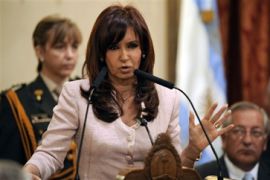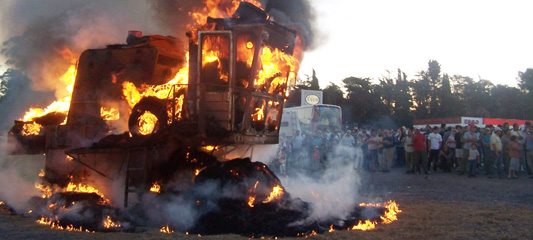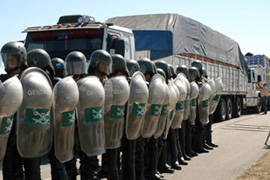Argentina leader condemns farmers
President accuses striking farmers of extortion amid signs of food shortages.

 |
| Farmers have blocked roads across the country in protest at the increased taxes [Reuters] |
 |
| Riot police have been called in to protect food trucks [Reuters] |
Trade at the country’s biggest grain and cattle markets has ground to a halt since the strike began on March 13 and supplies of meat and some dairy products in food shops were reported to be low.
| Argentina’s economic woes | ||
Although a nation rich in natural resources, Argentina’s 39.5 million strong population has suffered in recent decades from several economic crises Fiscal deficits, high inflation and mounting debts culminated in 2001’s economic crisis, which sparked protests, currency devaluation and debt defaults Sixty per cent of Argentinians were also pushed below the poverty line Country’s main exports include soybeans, corn, wheat, petroleum, gas and vehicles Inflation is currently in double figures and farmers say recent tax increases on goods such as soybeans, sunflower oil and beef by up to 45 per cent to boost revenues will cripple their livelihoods Data source: CIA World Factbook |
The conflict is the biggest crisis faced so far by Kirchner since she took over the presidency in December, and marks a deterioration in relations with farmers who have criticised measures such as export bans and price controls.
